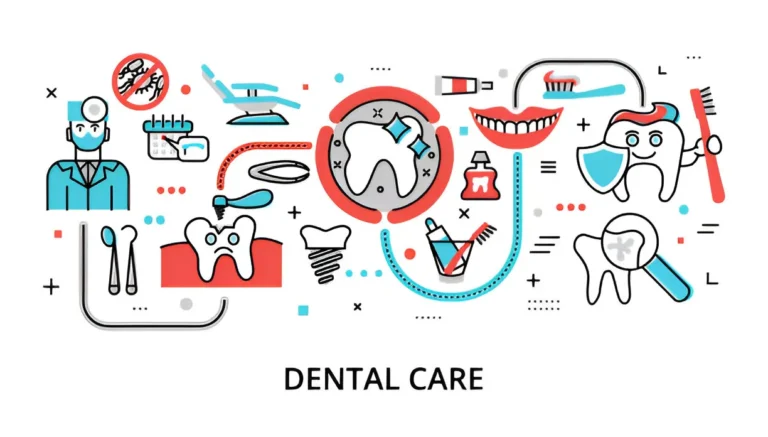Practical Strategies for Managing Migraine Triggers In Everyday Life
Key Takeaways
- Migraine triggers can be unique for each individual and may be caused by a combination of dietary, lifestyle, and environmental factors.
- Recognizing and documenting triggers is the first step toward effective migraine prevention and management.
- Even modest changes, such as tracking symptoms or improving sleep hygiene, can reduce migraine frequency and severity.
- A multidisciplinary, tailored approach often combining medical guidance with lifestyle modifications produces the best outcomes.
- Reliable resources and peer support are invaluable for those navigating long-term migraine care.
What Are Migraine Triggers?
Migraines intense headaches often accompanied by nausea, light sensitivity, and visual disturbances can be triggered by various factors specific to each individual. These triggers might be environmental, such as changes in weather or exposure to strong odors, or internal, like hormonal fluctuations or emotional stress. Recognizing your unique set of triggers allows for creating a more personalized prevention strategy that puts you in control of your migraines.
Getting expert support makes a measurable difference in managing migraines. People seeking reliable migraine guidance locally can benefit from resources like migraine treatment Jacksonville, FL, where specialists offer advice for everyday trigger management and treatment strategies tailored to their needs.
Common Triggers and How to Spot Them
Migraine triggers are as unique as those who experience them, but certain culprits are especially prevalent. Common triggers include certain foods such as aged cheeses, processed meats, or foods containing monosodium glutamate (MSG) and dehydration, alcohol, loud noises, bright lights, and sleep disturbances. Changes in routine, skipping meals, and heightened emotional stress often appear as patterns among people living with migraines. The challenge lies in discerning these patterns amid the demands of daily life, but doing so is a critical first step toward effective prevention.
The Role of A Migraine Diary
A migraine diary is an essential tool for unmasking your unique triggers. Tracking your daily routines, dietary choices, sleep quality, physical activities, and emotional state allows you to pinpoint recurring themes preceding your migraine attacks. Begin by noting the date, time, every symptom, potential triggers, and the severity of each episode. Numerous health providers, including neurologists, recommend this method because it equips patients and doctors with clear, actionable information to refine management strategies.
Lifestyle Changes That Help Prevent Migraines
- Stay Hydrated:Aim to drink at least eight cups of water each day, as dehydration is a frequent migraine trigger.
- Eat Routine Meals:Skipping or delaying meals can lead to blood sugar drops that trigger migraines; stick to consistent meal times.
- Maintain Consistent Sleep Patterns:Fluctuations in sleep either too much or too little can contribute to migraine susceptibility. Set a regular sleep schedule and avoid abrupt changes.
- Manage Stress:Integrate daily relaxation techniques like deep breathing, mindfulness, or gentle exercise.
- Limit Stimulants:Excessive caffeine and alcohol have both been linked to more frequent migraine episodes.
These healthy lifestyle adjustments help prevent migraines and promote overall wellness, building resilience against the stresses that can otherwise set off headaches.
Expert Tips to Minimize Trigger Exposure
Many migraine sufferers benefit from specific, evidence-based modifications suggested by healthcare professionals. For instance, blue light-blocking glasses can protect sensitive eyes from computer and mobile screens, while completely reading labels may help avoid triggering additives or sweeteners in processed foods. Personalization is central incrementally experiment with dietary changes or environmental adjustments to see what works best for you. As outlined in the American Academy of Neurology’s guidance on migraine prevention, leveraging expert advice with self-awareness provides the highest chance of controlling your symptoms long term.
When to Seek Professional Help
Migraines can sometimes become unmanageable or change in nature. If you notice your headaches intensifying, occurring more frequently, or not responding to previously effective coping strategies, it’s important to consult a healthcare provider. Any sudden changes especially symptoms like difficulty speaking, vision alterations, or acute weakness require immediate medical evaluation. Experts can recommend advanced treatment options, preventive medications, or therapies like physical therapy and biofeedback to manage migraines better and their impact on your work, relationships, and daily routines.
Staying Informed with Trusted Resources
Reliable knowledge and community support are invaluable for anyone navigating migraines. Turning to reputable sources ensures you receive up-to-date and accurate information on new research, treatment options, and practical tips. Trusted organizations such as the Centers for Disease Control and Prevention and the Migraine Research Foundation provide evidence-based content and guidance about daily living with migraines. Getting involved in migraine support groups in person or online can also help you find camaraderie and creative solutions to common challenges.
Making Migraine Management Work for you
Every journey with migraines is highly individualized, but understanding your triggers and making proactive lifestyle changes cultivates a sense of control. Combining self-observation, expert medical input, and peer support transforms migraine management from a source of frustration into an empowering daily practice. By leveraging practical strategies and staying current with research, you can reduce the frequency and severity of your migraines reclaiming your confidence and well-being.
The Secret Life of Bacteria: What Your Mouth Isn’t Telling You » Dunkin Donuts






